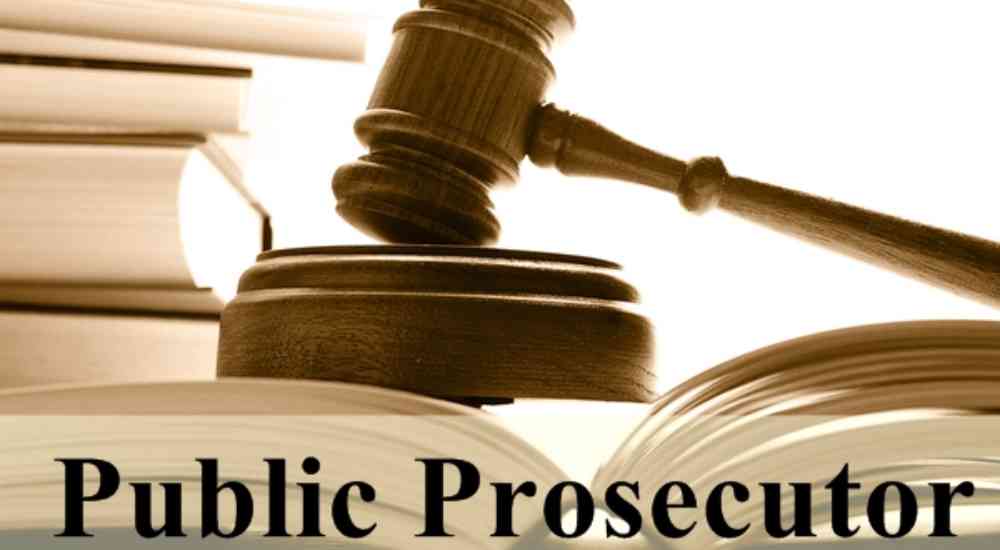Updated March 5, 2023
Public prosecutors perform a crucial role in the criminal justice system by protecting the rule of law and working to bring victims’ rights to justice. They are responsible for prosecuting individuals accused of committing crimes and work tirelessly to ensure that those who violate the law are held accountable for their actions.
In this article, we will discuss the qualifications and requirements for becoming a public prosecutor, their duties and responsibilities, their challenges, misconceptions about their work, and the future of their role in the justice system.
Types of Public Prosecutors
There are several types of prosecutors, including federal, state, and county. Federal prosecutors handle cases that violate federal laws, such as crimes that cross state lines or involve federal agencies. State prosecutors handle cases that violate state laws, such as theft or murder. County prosecutors handle cases that occur within a specific county.
Qualifications and Requirements
To become a public prosecutor, individuals must first obtain a law degree from an accredited law school and pass the bar exam in the state where they intend to practice. In addition to these educational requirements, prosecutors must have excellent communication, critical thinking, and legal research skills.
Depending on the level of government where a prosecutor works, there may be different needs and credentials. For instance, federal prosecutors must undergo a rigorous screening process and have at least three years of legal experience. County prosecutors might not have any precise requirements beyond having a law degree and passing the bar test; however, state prosecutors might be needed to have a certain amount of legal experience.
Duties and Responsibilities of Public Prosecutors
Public prosecutors have several duties and responsibilities, including making charging decisions, negotiating plea deals, and preparing for trial. They work collaboratively with law enforcement agencies to conduct investigations, compile evidence against offenders, and present the government’s case in court.
At the early stages of a criminal case, prosecutors must decide whether or not to charge a suspect with a crime. Before deciding to press charges, they must carefully examine the available evidence and weigh the strength of the case.
Once a case has been charged, prosecutors may negotiate plea deals with the defendant in order to avoid a trial. If a trial is necessary, prosecutors must prepare for trial by reviewing evidence, interviewing witnesses, and developing legal arguments.
Challenges Faced by Public Prosecutors
Public prosecutors’ difficulties in their work include a large workload, political pressure, and moral conundrums.
Prosecutors may find it challenging to devote time to each case due to a heavy workload. At the same time, political pressure can interfere with their ability to make charging decisions based solely on the evidence.
Ethical dilemmas may arise when prosecutors must decide whether to pursue a case even when they believe the defendant is innocent or when they must choose between seeking justice and protecting the rights of the accused.
Misconceptions About Public Prosecutors
Public prosecutors are subject to a number of widespread fallacies, including the notion that they are overzealous or biased. Some people believe prosecutors are more interested in winning cases than seeking justice, while others believe that they are biased against certain groups of people.
These misconceptions can impact the work of public prosecutors and the justice system by eroding public trust and confidence.
Conclusion
In order to protect the rule of law and seek justice for victims, public prosecutors play a crucial role in the criminal judicial system. Although there are difficulties in the career of a public prosecutor, it is a rewarding job that demands devotion to justice and perseverance.
Public prosecutors will need to adapt and embrace new approaches to criminal justice reform as society and technology change to continue playing a crucial role in the justice system.
Public prosecutors are ultimately responsible for ensuring justice and the law is upheld. Notwithstanding their difficulties, they are indispensable to the criminal justice system because of their commitment and dedication to their jobs.
Most Frequently Asked Questions
Ans: To become a public prosecutor, you typically need a law degree and several years of legal experience. You must also pass the bar exam in your state.
Ans: A public prosecutor represents the government in criminal cases, while a defense attorney represents the defendant.
Ans: Generally, the starting salary for a public prosecutor in India is around Rs. 40,000 to Rs. 50,000 per month. As they gain experience and rank, their salary can increase to Rs. 1 lakh or more per month.
